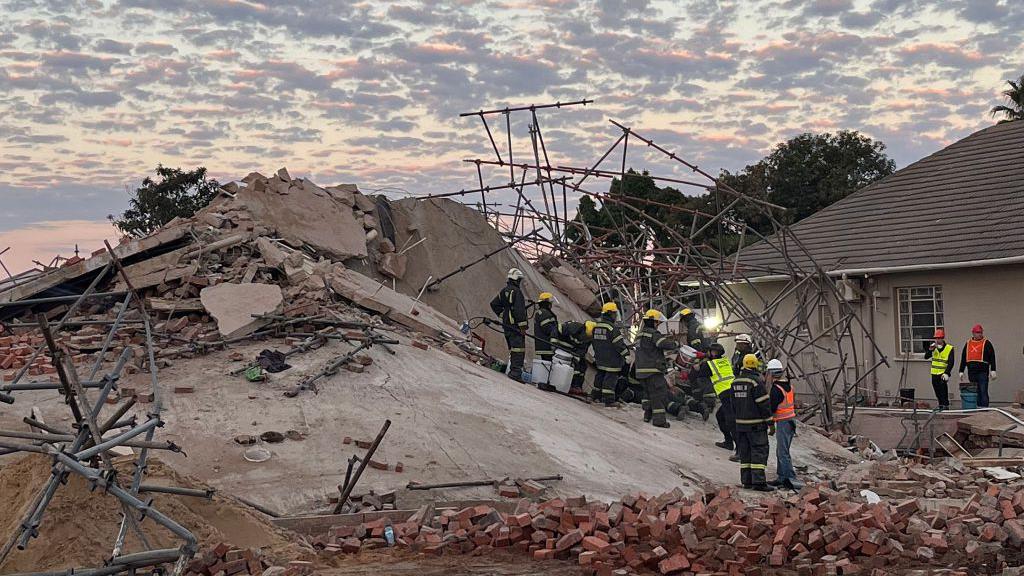South Africa building collapse that killed 34 was ‘entirely preventable’, says report

The report further revealed that workers were ordered to cover holes with sand and poor-quality concrete.
A damning new report into last year’s building collapse in George, Western Cape, has found that the tragedy which claimed 34 lives and injured dozens was completely avoidable, citing negligence and ignored warnings as key factors.
The partially constructed five-storey apartment block came crashing down in May 2024, burying workers under concrete and steel. According to the report, serious structural concerns had been flagged long before the fatal collapse.
Public Works Minister Dean Macpherson, visibly emotional while addressing the media, described the incident as the result of “multiple failures,” including the use of substandard materials, the presence of structural cracks, and alarming visible gaps.
“There were a number of red flags that were continually raised about this project,” Macpherson said. “The work should have stopped.”
Some of the defects had reportedly been detected a year earlier. In a striking revelation, the project’s health and safety officer resigned in protest over the safety lapses but construction continued regardless.
The report further revealed that workers were ordered to cover holes with sand and poor-quality concrete. Many had reported feeling vibrations in the structure before the collapse.
“These warning signs were ignored or deliberately covered up. This was a chance to turn back, but instead, people chose to press forward with deadly consequences,” the minister said.
Macpherson, after what he described as a "painful and emotional" meeting with survivors and bereaved families, called for criminal charges against those responsible. A police investigation is underway, but no arrests have been made.
Survivors continue to battle trauma, mounting medical bills, and financial hardship.
Electrician Delvin Safers, who was trapped under rubble for 28 hours, told the BBC he saw no immediate warning signs but believed if shortcuts were taken during construction, “those responsible should be held accountable.”
His father, Deon Safers, who attended the briefing, said he was satisfied with the findings but emphasized the family’s demand for justice and compensation, neither of which have materialized.
Another survivor, Elelwani, recounted to local media how her life has been upended. She lost several teeth, now struggles to eat, and has been subjected to ridicule turning to the public for financial help.
In response to the tragedy, Macpherson pledged regulatory reforms, including tighter oversight of construction projects and the overhaul of outdated legislation.
The probe was conducted by the Council for the Built Environment, alongside a parallel inquiry by the Engineering Council of South Africa.
